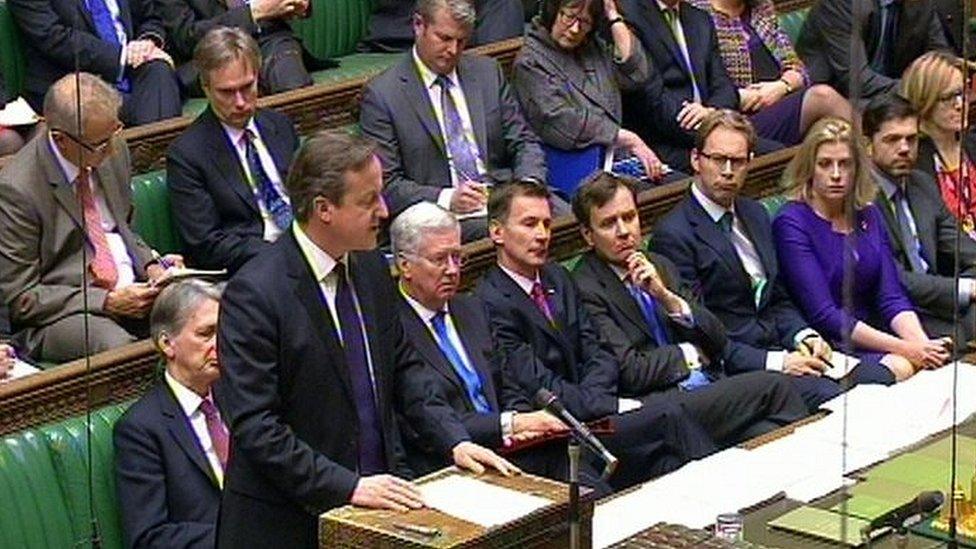Syria vote is back on the agenda
- Published

It's back - the prospect of the government sending British planes to drop bombs in Syria.
Ministers have for months believed it illogical to strike so-called IS in Iraq, but not over the border in Syria where their HQ is.
But the Paris attacks have led the PM to conclude "we have to ask if we are doing everything that we can do, and should do" to take extremists on alongside our allies.
For him, that means making the case for increasing intervention once again.
It will come in the form of an unusual personal response from the prime minister to the Foreign Affairs Committee, which set out broad concerns about strikes.
But David Cameron is pushing this right back up the agenda after months where the Parliamentary arithmetic was not certain enough for him to risk a humiliating defeat.
It still is not.
The anti-action position of the Labour leadership makes another vote far from a forgone conclusion.
There is deep concern about taking action unless it's part of wider efforts to bring peace to Syria.
That's why the prime minister has not committed to holding a vote asking for backing for air strikes yet, but instead is committing to remake the case more firmly and more comprehensively to try once more to persuade MPs.
As things stand a vote on strikes might probably sneak through, as many as 50 Labour MPs are interested in supporting action, and some Tory rebels have shifted position.
But a "maybe" won't be enough for Number 10 to ask the Commons formally again.
Today's statement by Mr Cameron is a big step, but only one along the road to a vote, and planes being sent into action in Syrian skies.